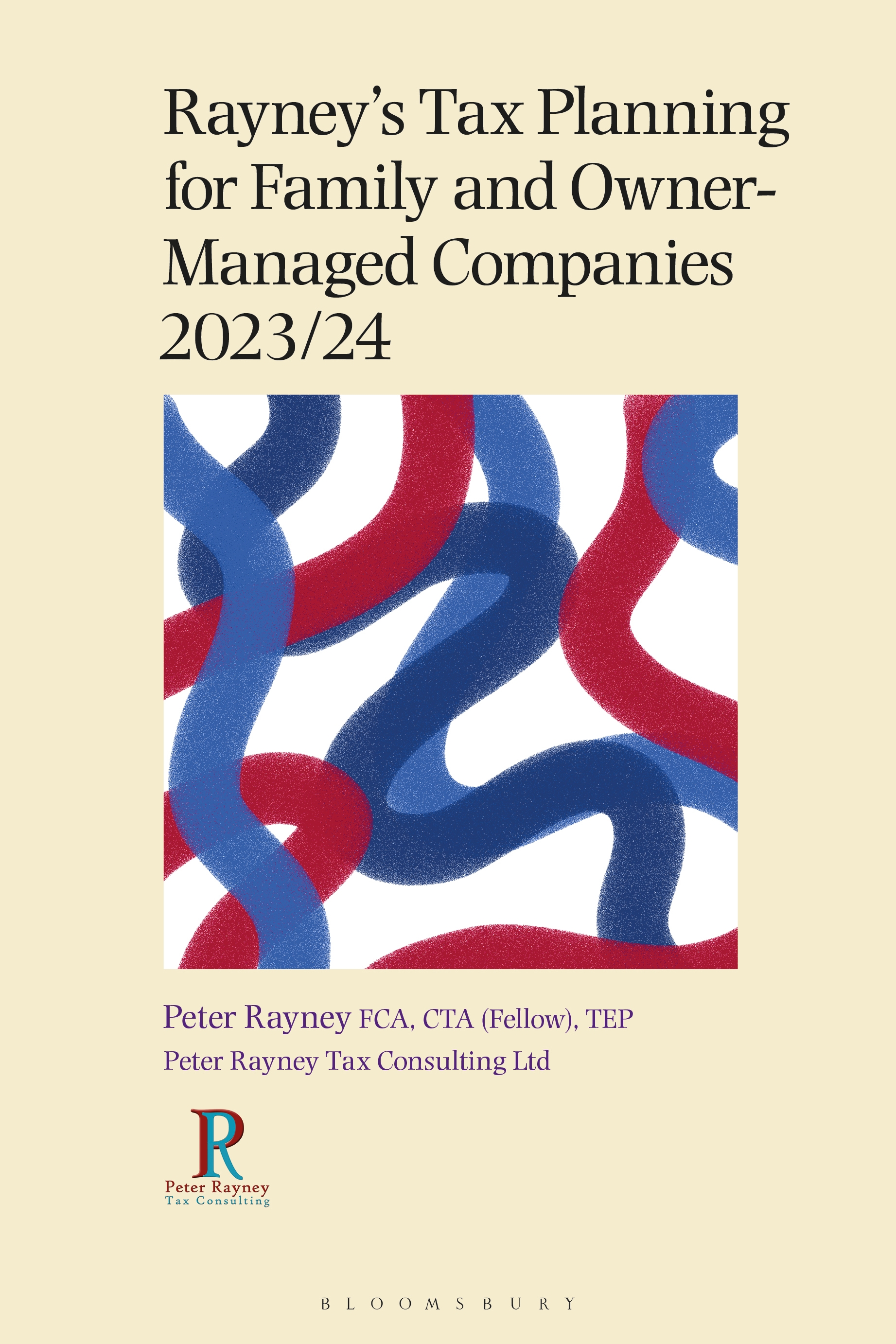Bloomsbury Professional Home
Tax
Q&A with Peter Rayney
Peter Rayney is the author of Rayney’s Tax Planning for Family and Owner-Managed Companies.
You can receive online access to this through our Gold Tax Service and Platinum Tax Service.
Can you tell us a bit about your background and areas of expertise?
After qualifying as a Chartered Accountant, I joined Arthur Andersen as a tax senior. I was very much brought up as a tax generalist doing corporate and personal tax work. More recently, I was a tax partner in BDO for many years and served as National Tax Technical Partner during my last five years there.
Since September 2009, I have run my own independent tax consultancy firm providing advice and assistance across all aspects of owner-managed business taxation, particularly company reorganisations and tax support to corporate finance projects.
I am also a tax writer and speaker. I author Bloomsbury Professional’s popular work “Rayney’s Tax Planning for Family and Owner-Managed Business”, which is frequently updated on line and published as a hard copy book annually (now effectively in its 28th year!)
What are some of the current trends in your area?
I have noticed that more clients are seeking to make use of Employee Share Ownership Trusts (ESOT’s) as an exit mechanism from their businesses, especially following the reduction in the Business Asset Disposal Relief (BADR) lifetime gains limit from £10 million to just £1 million.
Sale of controlling interests to ESOTs benefit from an extremely valuable CGT exemption. However, ESOTs are not for everyone and there must be a genuine desire to transfer the business to the workforce along the lines of a ‘co-operative’ ownership model.
I have also noticed an increased uptake in Inheritance Tax planning post-Covid, as more clients no longer consider themselves to be immortal!
What would you say are the major challenges for the profession at the moment and why?
On a practical level, there is a shortage of good tax advisers and many firms are finding it very difficult to recruit staff with the right skill sets as demand for tax advisory (and other professional services) continues to grow. Encouraging tax professionals to spend more time in the office is also a challenge, but this is the only way to provide practical mentoring!
Despite the much welcome deferment of digital online reporting, a large number of professional firms are still not investing or preparing sufficiently for the inevitable increasing digitalisation of tax compliance work
Did you enjoy your time as CIOT President?
Absolutely - I was humbled and honoured to serve the Chartered Institute of Taxation as President between November 2020 and May 2022. This was a special 18-month term to deal with the challenges faced during the Covid-19 disruptions. In many ways, this was a very different Presidency since I most of it was delivered online. During that time, I ‘virtually’ toured many branches and attended their ‘online’ events, delivered ‘overseas’ speeches, represented the CIOT at HMRC and ministerial level meetings and chaired many virtual events/roundtables. These include our CTA Address, Joint CIOT/IFS Debates, Tax Conferences, Admissions Ceremonies and Volunteer ‘thank you’ evenings.
I really enjoyed working with the CIOT’s CEO Helen Whiteman and our wonderful senior executive team to deliver a number of important governance reforms and also championed the CIOT’s commitment to climate change and equality, diversity and inclusion.
I am extremely proud of my various achievements as CIOT President, helping the Institute navigate many transformational changes in a difficult period. In recognition of these efforts, I was delighted to receive the esteemed Tolley Tax Award for ‘Outstanding Contribution to Taxation in 2021/22 by an individual’. Unfortunately, I caught Covid for the first time before the Awards Dinner and was unable to collect the award in person on the night!
An increasing amount is being written about the application of AI in tax work – what are your thoughts?
If you had told me what ‘mobile phones’ could do say 10 years ago, I would have thought you were having a laugh! I think the story with AI is going to be much the same. The general consensus is that the AI technology is improving exponentially. However, many tax professionals feel that complex tax issues often involve balancing different perspectives and fine elements of judgement. All this benefits from many years of practical experience and there is a feeling that AI could not deal with these aspects – but only time will tell…
What advice would you give to someone new to the profession?
Remember that once you have passed your professional exams, this is only just the beginning. To do well in tax you need to ‘live and breathe’ it and never pass up the opportunity to discuss tax issues with experienced tax practitioners or give a talk to other professionals. On a personal level, I would also say that I have found my involvement in tax committee work for both the CIOT and ICAEW Tax Faculty immensely beneficial. It enables me to network with my peers and keeps me up to date with current tax issues – plus I have made many great friends along the way!

